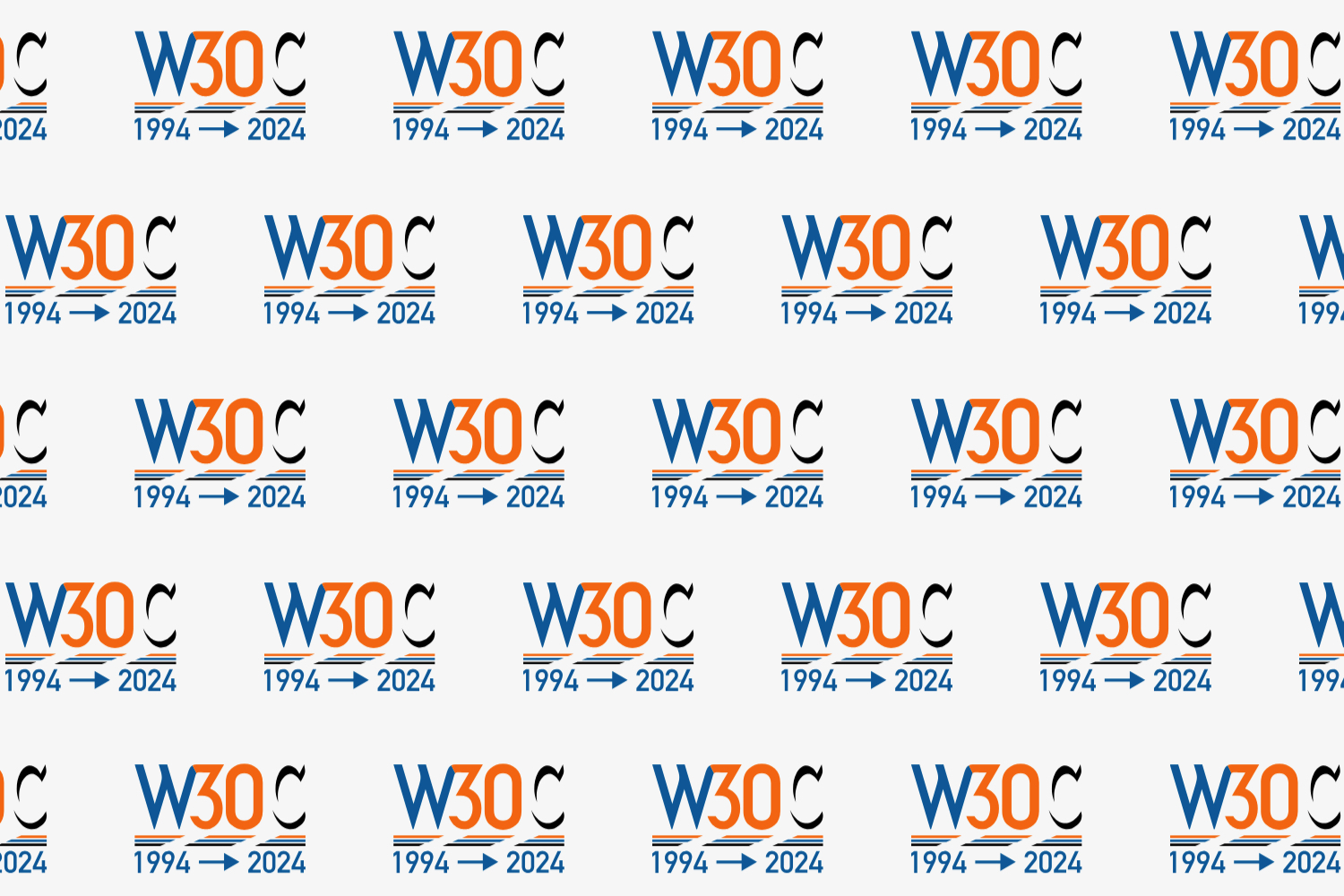Working with stakeholders of the web
A range of organizations join the World Wide Web Consortium as Members to work with us to drive the direction of core web technologies and exchange ideas with industry and research leaders. We rotate randomly a few of our Member organizations' logos underneath.
The Web Consortium and its members, with help from the public and the web community, focus on a range of business ecosystems that the web transforms, including E-commerce, Media & Entertainment, Publishing and several other areas.

W3C 30th anniversary
1 October 2024 was W3C's 30th anniversary. We celebrated at our annual TPAC our three decades, advances in the web, the impact of our standards on the world, imagined a bright future, and enjoyed ourselves at an authentic evening of talks and a gala.
TPAC, our major annual event, gathers our community for thought-provoking discussions and coordinated work to advance the invaluable work of our Groups, and resolve challenging technical and social issues that the web faces.
TPAC brings together W3C Members and technical groups, the Board of Directors, the Advisory Board, and the Technical Architecture Group.

Web standards
Web standards are the building blocks of a consistent digitally connected world. They are implemented in browsers, blogs, search engines, and other software that power our experience on the web.
W3C is an international community where Members, full-time staff, and the public work together to develop web standards.

Get involved
W3C works at the nexus of core technology, industry needs, and societal needs. Everyone can get involved with the work we do.
There are many ways individuals and organizations can participate in the Web Consortium to advance web standardization.